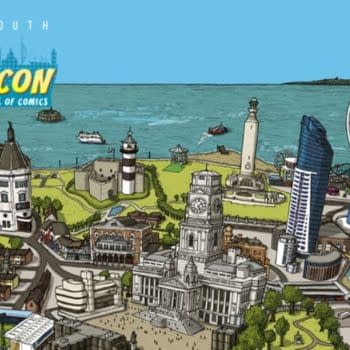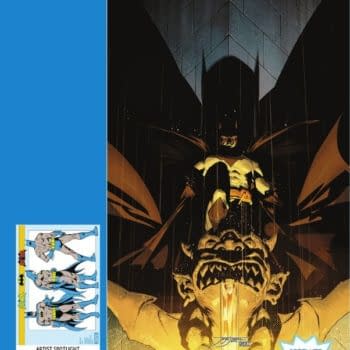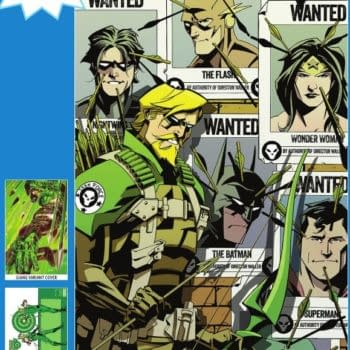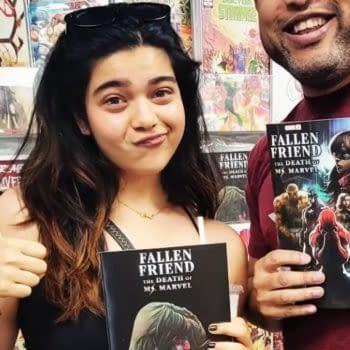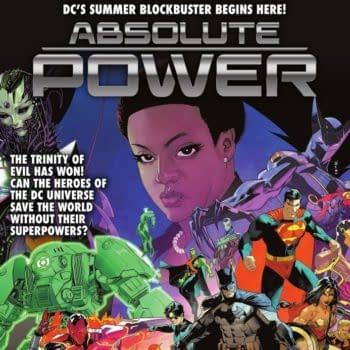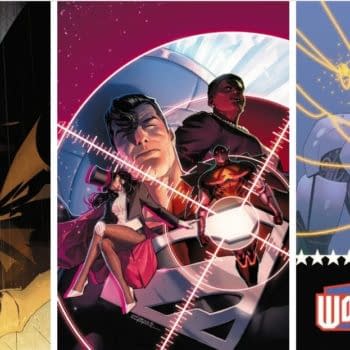Posted in: Comics | Tagged: battlestar galactica, Comics, doctor who, dynamite, entertainment, sherlock holmes, star trek, tony lee
Tony Lee Talks To Reddit About Writing Licensed Properties

Q: My first question is how much creative control do you have over the characters and story? Do the producers/license holders give you freedom to do what you want, or are they very particular about what you can and can't do?
A: Dynamite are brilliant for creative control, they allow me to reach as high as I can, and if I go too far, they can always pull me back. I'd rather be told I've crossed the line and ease up than be told I didn't even push for it.
That said, the licensors differ from publisher to publisher. Original BSG though is an easier license than others I've worked for, as it's been off air for decades, I get a little more wiggle room. That said, I do keep as much as I can to continuity!
Q: Is there a market for more steampunk? I've seen more and more titles with that in it, or is it just a fad?
A: There seems to be – but then if a story is told in a new and inspiring way, there's a market for everything. Look how many comics there are about lone survivor alien heroes in tights!
Q: Mr. Lee, what would you say your biggest influences in writing Steampunk Battlestar Galatica: 1880 have been?
A: Probably SPACE: 1889, Star Wars and Pacific Rim. I've pretty much taken inspiration from all those. As well as a lot of HG Wells and British Empire alternate world tales!
Q: Whose idea was it to go "Steampunk" on this project? Could you tell us about the creative process behind that decision?
A: I was in LA in February, and Nick and Joe (of Dynamite) emailed me saying they had the idea, and was I interested in playing with it. The actual nuts and bolts of the story were completely up to me, though.
I sent some pitch idea, they yay'd or nay'd them, and then when we had a final, solid plan, we started scripting. From start to finish it was probably one of the smoothest licenses I've worked on.
Q: Tony, how did you get into writing comic books, and how would an aspiring writer such as myself be able to do so with a company like Dynamite?
A: I got into writing comic books by being a writer. I was lucky, I'd been a journalist and an advertising (commercials) writer when I decided to give comics a go. So I contacted everyone. And got nowhere. So I wrote. I wrote five page 'Future Shocks' for 2000ad, I hassled Doctor Who Magazine for opportunities. And although I got my name known, I didn't get work.
In 2003 I was in New York for meetings unconnected to comics, so I called DC and Marvel, said I was a Brit writer in town for one day, would love to chat with them. I met with both. DC tried to convince me to NOT write comics, but Marvel, then creating EPIC, offered me a tryout.
I stress, this was purely based on the strength of my writing samples.
That got me into the right place at the right time. They needed a story for a new X-Men comic, and I was talking to the editor the day it came in. And, once I had a Marvel credit, it made talking to other companies easier.
If you're aspiring, that to me says that you're not published. Honestly? Dynamite have a limited number of slots and a dozen actual, accredited and acclaimed writers pushing for each of them. Start small. Create your own comic, put it online, get a team together, speak to the smaller publishers out there, get a portfolio together that you're proud of. Go to conventions, meet and get to know editors. You never know when they might need you.
I mean, nine months and eleven months after I met DC that day in New York, they gave me my first gig!
Q: What are the best and worst parts of adapting licensed work? What do you do in terms of research for each project?
The best part? If you've pitched for a license, the chances are it's a license you've enjoyed. So writing it is awesome.
The worst part is when you have to fight for something to stay in a story when the licensor or the editor is going '[x] wouldn't do that' when you know that they would. Several times I've had to show actual instances in episodes of Doctor Who to prove that the Doctor would do the thing I wanted him to do in the comic. But that's the job.
As for research? I'm abashedly a 'fan writer' which means I like to bring things in for the long term fans. Easter Eggs, cameos, things that make the reader of the comic smile, yet don't impact on new readers. So there's a large amount of reading required, to ensure that you know pretty much everything you can. That said, I'm not talking continuity heavy – a lot of publishers would quite happily ignore continuity altogether, as it'd sure as hell make their jobs easier. You need to create the easiest story, with the least amount of continuity ties, while creating a complex tale that links into the continuity. Fun! And something that's hurt me a couple of times when I've pitched for things but put too much continuity in.









